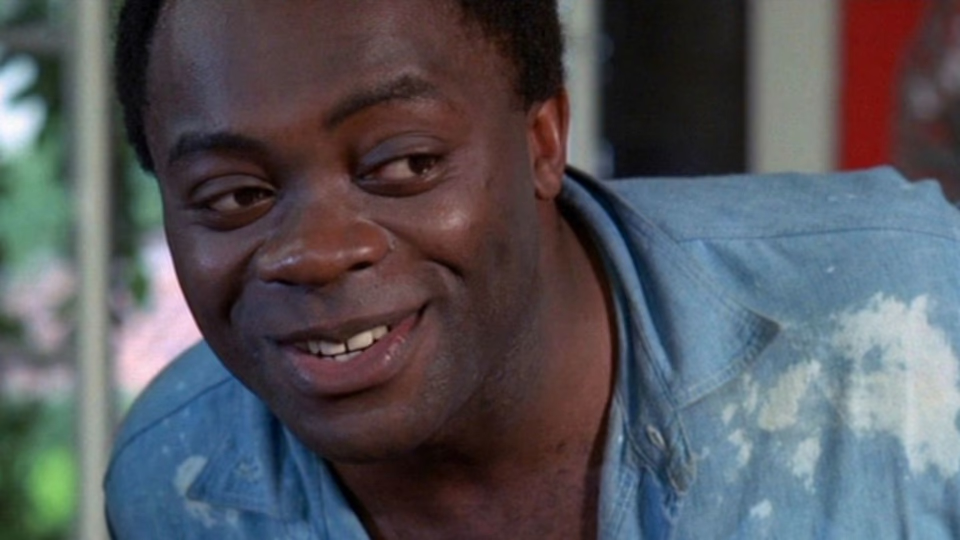Bone

Larry Cohen’s directorial debut. A dark satire masquerading as a home invasion thriller. The film opens on a middle-aged Beverly Hills couple. He’s skimming leaves out of the pool, complaining about the help’s work ethic. She’s sunbathing. The sudden appearance of a large black man disrupts their routine. At first, they believe him an exterminator, but the couple soon finds themselves his prisoners.
The man is the titular Bone, played by Yaphet Kotto in a career performance. He menaces early, forcing the couple inside, then ransacking their house, searching for money. He finds only bills and overdue notices. Sweating, his search continues. The couple’s bickering turns nasty as the wife discovers their accounts overdrawn. Soon, Bone discovers the husband has a secret account with thousands of dollars. The wife is aghast. Bone dispatches the husband to retrieve the money, threatening the wife with rape and murder unless he returns within the hour.
And here the movie transcends the thriller genre into genius satire. With the clock ticking, the husband can’t find parking. Then he faces lines at the teller. But before withdrawing the money, he reconsiders. Bone will rape and kill his wife. Is that so bad? Maybe a drink first to think.
When he doesn’t return in time, Bone tries to fulfill his threat and force himself on the wife. He’s not thrilled, saying, “This is a rotten day for both of us.” But he can’t do it. The wife is relieved, then insulted. “Is it because I’m white?” she asks.
Bone’s explanation shows surprising introspection. He shifts from menacing thug to erudite intellectual, confessing he feels lost in the fast-changing world. “What kind of rapist am I?” he wonders.
Meanwhile, the husband chances upon an attractive kleptomaniac and ends up back at her place. Weepy violin music accompanies emotive tears as she confesses childhood abuse. I’m not sure what Cohen was aiming for, but he missed the mark. Still, during this scene and the bar scene, Andrew Duggan channels William Holden as the husband, also named Bill.
I won’t spoil the ending, but suffice it to say it satisfies. Along the way, we get more memorable lines, such as Bill’s ad-man dreaming up a new campaign with Bill’s wife replacing his former canine sidekick, saying, “A dog is a dog, but a wife is a bitch!”
It may sound as though Bone is a mean film. It is not. Incendiary perhaps. Its casual discussion of sexual violence will prove off-putting for some, but I didn’t feel Cohen was diminishing its seriousness, just challenging the stereotypes around sexual predators. More than once, I laughed aloud at the outrageous dialogue.
And its roots go deep. Its critique of material culture and changing masculinity still resonates, as does its challenge of black stereotypes. And its opening credits predate Halloween.